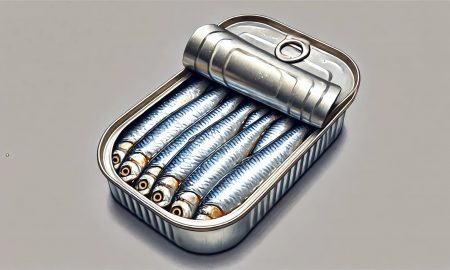
Nine Important Nutrients That Need To Be Included In Your Kids’ Diet

As parents, it’s but normal that you make sure that you are choosing the right kind of food for your children. You always do your best to give your kids a healthy and balanced diet. You might even be guilty of acting like a detective, scanning every label of the food your kids eat. What is more challenging to the parents is that not all kids are the same.
 One would love fruits and vegetables, but others would love fries and chicken, or worse, very picky eaters. And when it comes to kids’ nutrition, there’s always a constant challenge to give kids food that they need, especially food that is healthy and nutritious.
One would love fruits and vegetables, but others would love fries and chicken, or worse, very picky eaters. And when it comes to kids’ nutrition, there’s always a constant challenge to give kids food that they need, especially food that is healthy and nutritious.
These are the nutrients that are essential in your kids’ growth.
Protein
This is what they call the building blocks of the cells. Protein helps build the cells, especially when you sleep. It also breaks down food and converts it to energy. Protein also fights infection and aids in carrying oxygen from your blood to your brain. Foods that contain a high amount of protein are fish, eggs, nuts, beans, meat poultry, dairy products, and nuts. Kids aged two to eight years old should at least take three to five ounces of protein per day. While kids aged ten to fourteen must at least have five or eight ounces.
Calcium
This is the mineral that is stored in bones and teeth. This is essential in the kid’s growth and even adolescents since it maintains healthy bones and healthy teeth. Calcium also assists in muscle contractions, blood regulation, and nerve stimulations. Good sources of calcium are dairy products such as milk, soy milk, tofu, and dry cereals. For kids aged four to eight years old must take one thousand milligrams of calcium per day, while kids aged nine to thirteen must take at least one thousand three hundred milligrams per day.
Vitamin D
 This vitamin aids in building strong and healthy bones. Kids of all ages must take six hundred international units of calcium per day. Children can choose the right amount through vitamin supplements.
This vitamin aids in building strong and healthy bones. Kids of all ages must take six hundred international units of calcium per day. Children can choose the right amount through vitamin supplements.
Carbohydrates
The main action of this nutrient is to serve as an essential source of energy. This nutrient also helps in building and repairing body tissue with the aid of fat and protein as well. Good sources of carbohydrates are bread, pasta, potatoes, crackers, cereals, and rice. Growing children and adolescents need to take two hundred twenty-five to three hundred twenty-five grams of carbohydrates a day.
Iron
This is very important in your kids’ diet because having the right amount of iron will help build your kid’s red blood cells, which are responsible for carrying oxygen to the cell all over the body. Kids that lack iron can get anemia. Good sources of iron are beans, green leafy vegetables, red meat, eggs, tuna, and even iron-fortified cereal. Kids aged four to eight years old must have ten milligrams of iron a day.
Folate
It’s not only pregnant mothers that need folate but kids as well. Folate Vitamin B is essential in the development of kids’ cells. Good sources of folate are brussels sprouts, beans, whole grain cereals, lentils, chickpeas, spinach, and asparagus. The folate recommended daily intake for kids aged one to three is two hundred mcg and 300 mcg for kids aged four to eight.
Vitamin A
This is essential not only to kids but to adults as well. It assists the eyes in adjusting to dim lights to bright lights. It also keeps the skin healthy and prevents infection too. Good sources of Vitamin A are carrots, sweet potatoes, broccoli, cabbage, fish oils, squash, egg yolks, and apricots. Kids and adolescents should at least have two thousand IU of Vitamin A and more as they get older.
Fiber
Fiber is also essential in your kids’ diet since it helps to regulate the bowel. It also helps reduce the risk of heart disease and cancer. Good sources of fibers are whole grains, kidney beans, lentils, chickpeas, nuts, and seeds. Growing kids must at least 25 grams of fiber a day.
Fats
This is an excellent source of energy, especially to very active kids. Fats also help in the usage of the other nutrients in the body. Good sources of fats are cooking oils, meat, fish, and whole milk dairy products, as well as nuts. Growing kids should at least have eighty-six grams of saturated fat.
 While it’s essential to always plan out proper and healthy meals for your children, don’t deprive them of the occasional junk food. But always encourage them to eat healthily to ensure that they grow up to be in the best health possible.
While it’s essential to always plan out proper and healthy meals for your children, don’t deprive them of the occasional junk food. But always encourage them to eat healthily to ensure that they grow up to be in the best health possible.
More in Diet
-
`
The Viral Sardine Fast: Shocking Results You Won’t Expect
The viral sardine fast has gained popularity as one of the latest health trends. The premise is simple: consume only sardines...
October 5, 2024 -
`
How Breastfeeding Moms Can Sleep Well & Ensure Safer Sleep For Their Babies
Does breastfeeding make you tired? When a mother breastfeeds, her body releases a hormone called oxytocin. This “love hormone” plays a...
September 26, 2024 -
`
Novak Djokovic’s 25th Grand Slam – What to Expect in 2025?
As the tennis season draws to a close, Novak Djokovic faces an unprecedented challenge: ending a year without a Grand Slam...
September 22, 2024 -
`
3 Tips for Rotator Cuff Health to Speed Up Shoulder Recovery
Rotator cuff health tips can help reduce pain and improve mobility after an injury. The rotator cuff is crucial for shoulder...
September 12, 2024 -
`
Christina Aguilera Impresses Fans and Facial Aesthetics Docs With Ultra-Slim & Youthful Look
Christina Aguilera’s weight loss is a hot topic these days, and for good reason. After stepping out of the spotlight for...
September 7, 2024 -
`
Visiting Brussels, Belgium, For the First Time? Here is What You Should See & Do
When exploring the capital of Belgium, you might wonder what the top things to see and do are. This cosmopolitan hub,...
August 28, 2024 -
`
The Pork Adobo Recipe to Take Your Dinner to the Next Level
The pork adobo recipe is a culinary gem that truly showcases the heart of Filipino cuisine. This dish, deeply rooted in...
August 21, 2024 -
`
Can I Shrink My Liver in 2 Days? A Guide to Liver Shrinking Diets
Can I shrink my liver in 2 days? This question is often asked by individuals preparing for weight loss surgery or...
August 16, 2024 -
`
George Conway Weight Loss – How Did He Shed 40 Pounds?
George Conway, the legal eagle turned political commentator, has recently captured the public’s attention for more than his sharp legal mind....
August 5, 2024











You must be logged in to post a comment Login